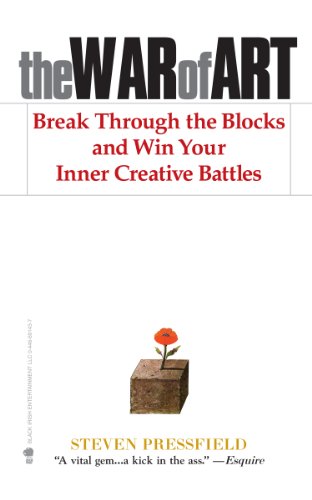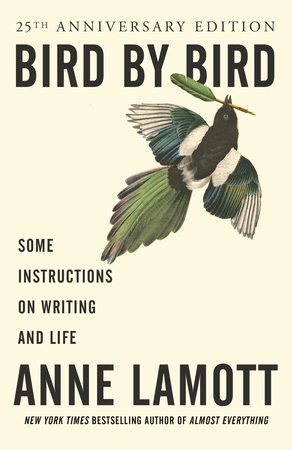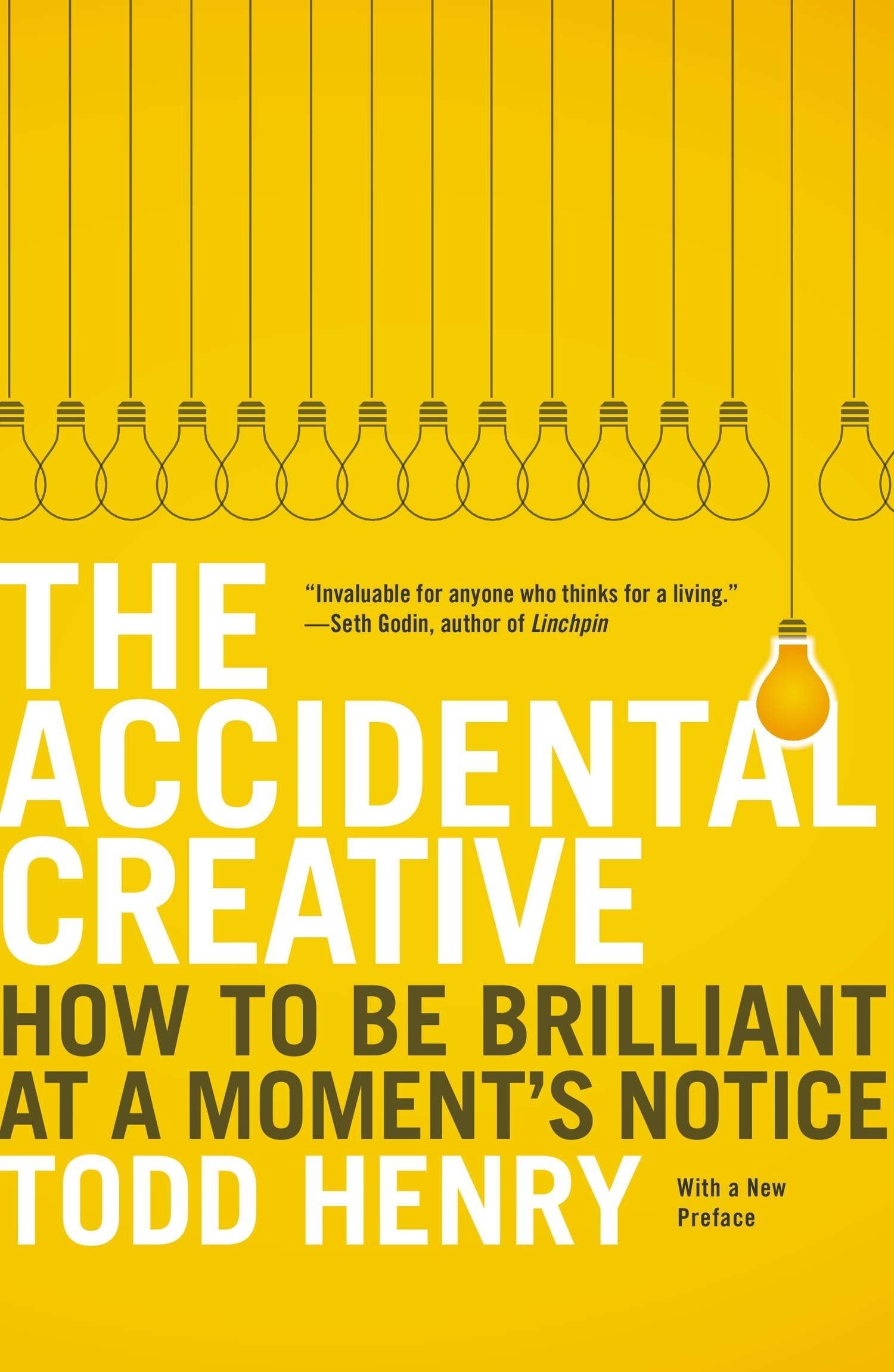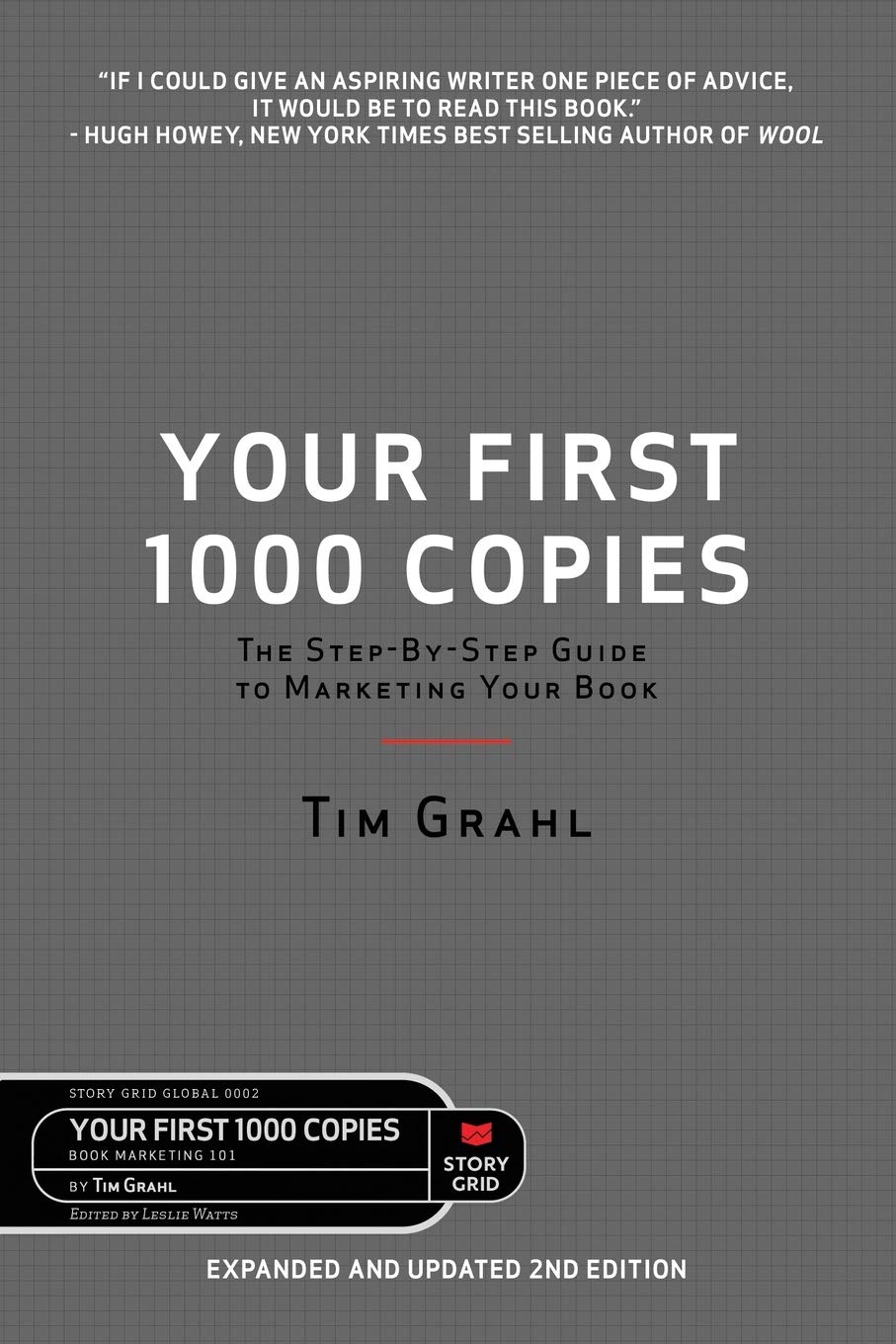Reading the right books can help you become a better, more successful writer, but where to start!?
I’ve been an avid reader of books for writers a long time now, and it’s a topic I’ve written about in the past. But as I keep reading more books in this genre, I expand and refine my list of recommended books.
In this blog post I’m going to spotlight my favorite books for writers in the following categories:
- Inspirational Books for Writers
- The Craft of Writing
- The Writing Life
- Creativity
- Book Marketing
Here we go!
Inspirational Books for Writers
 The winner in this category is easy: Steven Pressfield’s The War of Art: Break Through the Blocks and Win Your Inner Creative Battles.
The winner in this category is easy: Steven Pressfield’s The War of Art: Break Through the Blocks and Win Your Inner Creative Battles.
It’s short. It packs a punch. And I can pretty much guarantee you won’t walk away from this book without being changed for the better.
I’ll mention two more inspirational books for writers.
The first is Seth Godin’s book The Practice: Shipping Creative Work. Sometimes focus so much on outcomes, we need someone to stress the importance of staying on the journey. This book is that someone.
And finally, several years ago I wrote a short book called Do Your Art: A Manifesto on Rejecting Apathy to Bring Your Best to the World. Creativity expert Todd Henry said this about it: “Chad’s manifesto delivers a simple but profound truth: you have unique art to offer the world, and deliberate action is the only path to making it happen. A wonderful (and welcome) kick in the pants!”
The Craft of Writing
 In my opinion, the best book to help you improve your writing skills is William Zinsser’s On Writing Well: The Classic Guide to Writing Nonfiction. It is standard issue in newsrooms throughout the country for a reason. It’s that good, and it’s also quite entertaining, which of course is part of why it’s so good.
In my opinion, the best book to help you improve your writing skills is William Zinsser’s On Writing Well: The Classic Guide to Writing Nonfiction. It is standard issue in newsrooms throughout the country for a reason. It’s that good, and it’s also quite entertaining, which of course is part of why it’s so good.
Fiction writers have much to gain from Zinsser despite what the subtitle suggests, but for a book more directly focused on fiction, see Sol Stein’s Stein on Writing: A Master Editor Shares His Craft, Techniques, and Strategies. One of the things I love most about this book is how many examples Stein includes.
A book that more recently hit my radar is Writing Tools: 55 Essential Strategies for Every Writer by Roy Peter Clark. I’m about halfway through it, and I can tell you it’s very, very good. The chapters are short, which makes it easy to use as a daily reader if you’d like. Each chapter is about a very practical and well-illustrated tactic.
Another book that will help you improve your writing is Write Better: A Lifelong Editor on Craft, Art, and Spirituality by Andrew T. LePeau. I liked it so much, I used it for a multisession master class in BookCamp. Uniquely, LePeau writes this book from a Christian worldview, which does not mean the book is only for Christians. But this approach frees the author up to include a helpful section on the spirituality of writing.
And finally, I can’t sign off on a collection of books about the craft of writing without mentioning The Elements of Style by William Strunk Jr. and E. B. White. Another classic, this slim volume is a fast read, full of wisdom.

The Writing Life

It’s really difficult for me to pick a single favorite in this category, so I’ll pick two: Anne Lamott’s Bird by Bird: Some Instructions on Writing and Life and Stephen King’s On Writing: A Memoir of the Craft.
 Lamott is laugh-out-loud funny, and she does such a great job of normalizing all the usual fears writers face.
Lamott is laugh-out-loud funny, and she does such a great job of normalizing all the usual fears writers face.
Stephen King’s book is riveting. as you’d expect. There’s one particular scene in which King describes the moment his fortune as a writer changes, and it’s spellbinding. You’ll love it.
Two other books deserve to be mentioned here. One is Natalie Goldberg’s Writing Down the Bones: Freeing the Writer Within, which presents a Zen approach to writing. I find her breezy, vulnerable writing so compelling.
And then there’s Jeff Goins’ Real Artists Don’t Starve: Timeless Strategies for Thriving in the New Creative Age, the most recently published of this collection. Jeff’s a friend, and he told me the book was really just an excuse to share a bunch of stories he likes to tell. Well, the stories are wonderful, but it all holds together really well too.
Creativity
Books about creativity—how to live creatively, how to maximize one’s creative output, etc.—are among my favorite books to read.
 Todd Henry’s The Accidental Creative: How to Be Brilliant at a Moment’s Notice changed my life. Reading this book was the first time I encountered the idea that I could live in a way that facilitated my best, most creative work. Todd, who since has become a friend, not only explicates this idea; he provides a method for living it out.
Todd Henry’s The Accidental Creative: How to Be Brilliant at a Moment’s Notice changed my life. Reading this book was the first time I encountered the idea that I could live in a way that facilitated my best, most creative work. Todd, who since has become a friend, not only explicates this idea; he provides a method for living it out.
Elizabeth Gilbert’s Big Magic: Creative Living Beyond Fear is a wonderfully rich read, and perhaps more narrowly focused on the work of writers. Gilbert’s a master storyteller. You find yourself swept up in her narratives as you glean lessons that powerfully enrich your creative life.
I love Austin Kleon’s three little books, Steal Like an Artist, Show Your Work! and Keep Going. They’re in a smaller format than typical trade books, very fast reads, and full of all kinds of engaging art. Fun!
Have you heard about Brian Grazer’s A Curious Mind: The Secret to a Bigger Life? Grazer is Ron Howard’s business partner and has helped produce such films as Splash, 24, A Beautiful Mind, and Apollo 13. One reason this book is so great is because you get to live vicariously as Grazer interacts with such people as Mick Jagger, Princess Diana, and Isaac Asimov. But I love the practical suggestions in this book too, including what he calls “curiosity conversations.”
Finally, a children’s book deserves mention here. Kobi Yomada’s What Do You Do with an Idea?, beautifully illustrated by Mae Besom, is a treasure.
[callout]Help support local booksellers by ordering via the links in this post. Every purchase at BookShop.org earns 10 percent in support of local bookstores. Also, the links in this post are my affiliate links with Bookshop.org, so I will earn a small commission if you click through and make a purchase. Thanks for your support![/callout]
Book Marketing
It’s one thing to get a book published.
It’s quite another to sell enough copies to make some money, have an impact, and feel like the effort was worth it!
Enter marketing. Not many writers think to themselves, “I really want to be an amazing marketer.” But marketing in most cases is necessary, and the books I’ll reference below make the process less daunting, even fun sometimes!
 Tim Grahl’s Your First 1,000 Copies: The Step-by-Step Guide to Marketing Your Book is my favorite book on book marketing, bar none. Grahl demystifies the process of building an audience and tells you exactly where to focus your attention. I think so highly of Tim’s approach, I led a group of writers through six sessions about it inside BookCamp, my training and community hub for writers.
Tim Grahl’s Your First 1,000 Copies: The Step-by-Step Guide to Marketing Your Book is my favorite book on book marketing, bar none. Grahl demystifies the process of building an audience and tells you exactly where to focus your attention. I think so highly of Tim’s approach, I led a group of writers through six sessions about it inside BookCamp, my training and community hub for writers.
Author Donald Miller made a splash with his memoir Blue Like Jazz years ago. He’s a great writer, and nowadays he focuses on helping businesses serve their customers better. His book, Building a Story Brand: Clarify Your Message So Customers Will Listen will help you get clear on the problem your book solves, which is key to marketing it well.
Seth Godin’s Tribes: We Need You to Lead Us is a breezy quick read that explores the possibilities available to us with the advent of digital media. The reality, as Kevin Kelly told us, is we don’t need millions of fans to be successful. We need, he said, 1000 true fans. In Tribes, Seth shares his ideas about how to build a tribe of true fans.
Jonathan Milligan’s Your Message Matters: How to Rise Above the Noise and Get Paid for What You Know and Michael Hyatt’s Platform: Get Noticed in a Noisy World will both help you build a platform and find your niche.
[reminder]Which of these books appeals to you most right now?[/reminder]